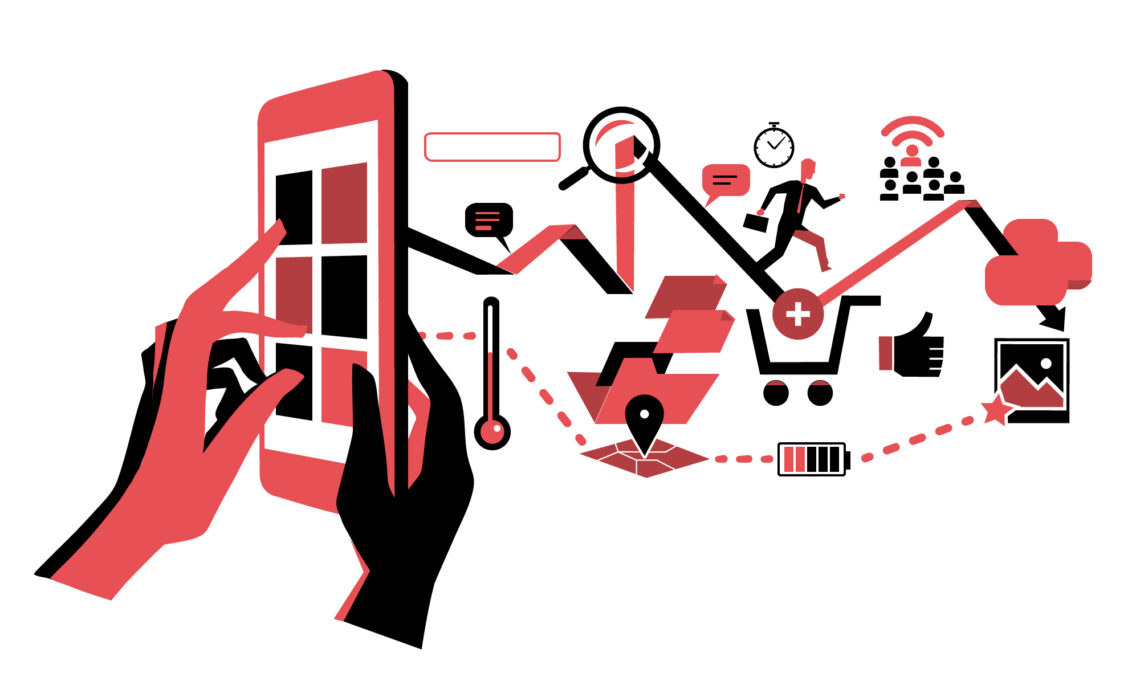Artificial intelligence (AI) is transforming how businesses create and operate marketplace apps. With the rapid evolution of technology, building a marketplace app in 2025 will require a strategic integration of AI-driven features to meet user expectations and enhance functionality. From personalized recommendations to seamless customer support, AI offers a multitude of tools to create a more intuitive, user-friendly, and efficient platform.
In this blog, we’ll explore the key AI features that should be integrated when building a marketplace app in 2025 to ensure your platform stays competitive and offers a cutting-edge user experience.
- Personalized Recommendations
Personalization is at the heart of modern marketplace apps, and in 2025, AI will make it even more sophisticated. AI algorithms can analyze vast amounts of user data—browsing history, previous purchases, and even real-time interactions—to provide tailored product recommendations.
This not only improves the shopping experience by presenting relevant items to each user but also boosts sales. For instance, AI can suggest related products or alternatives based on the user’s browsing behavior, making it easier for them to find what they need. The power of personalized recommendations lies in increasing user engagement, leading to higher conversion rates and customer satisfaction.
- Smart Search and Filtering
Search functionality is crucial in a marketplace app, and integrating AI can significantly enhance this feature. Traditional keyword-based searches often miss the mark when users don’t input specific terms. With AI-powered smart search, natural language processing (NLP) enables the app to understand user intent, delivering more accurate results even from vague or incomplete queries.
In addition to smart search, AI-driven filtering systems allow users to narrow down results based on preferences like price range, product type, or availability. As these algorithms continuously learn from user interactions, they become more efficient, providing faster and more relevant results. This leads to an easier, more intuitive user experience, reducing frustration and helping users find what they need quickly.
- AI-Powered Chatbots for Customer Support
Customer support is a cornerstone of any marketplace app. AI-powered chatbots are transforming this space by providing 24/7 assistance, reducing the need for human intervention. These chatbots are capable of answering common questions, resolving issues, and guiding users through the app.
What sets AI-driven chatbots apart is their ability to learn from interactions. Over time, they become more adept at handling complex inquiries, providing personalized responses based on the user’s history and preferences. In 2025, integrating intelligent chatbots into your marketplace app can ensure users receive prompt and accurate support, improving the overall experience and fostering trust.
- Predictive Analytics for User Behavior
Predictive analytics is one of the most powerful AI features you can integrate when building a marketplace app. By analyzing historical user data, AI can anticipate future behavior, such as predicting which products a user is likely to purchase next or when they may abandon their cart.
This capability allows businesses to take proactive measures, such as sending personalized notifications or offering discounts to encourage purchases. Predictive analytics also helps in inventory management, forecasting demand, and optimizing pricing strategies. In 2025, this AI feature will be indispensable for marketplace apps looking to stay ahead of the competition by anticipating user needs and trends.
- AI-Driven Fraud Detection
Security is a top priority for any online marketplace, and AI plays a critical role in fraud detection. In 2025, advanced machine learning algorithms will be able to identify patterns in user behavior that signal potential fraud, such as suspicious transactions or account activities.
By analyzing data in real-time, AI systems can flag and block fraudulent activities before they cause harm, protecting both the platform and its users. Additionally, these systems will continuously learn and adapt to new types of fraud, ensuring that your marketplace app remains secure as threats evolve. Integrating AI-driven fraud detection is crucial to building trust and maintaining the integrity of your platform.
- Voice Search and Command Features
As voice search continues to grow in popularity, integrating AI-powered voice recognition technology will become essential when building a marketplace app in 2025. Voice search allows users to search for products, navigate the app, and even complete purchases through spoken commands, offering a hands-free, convenient experience.
AI-driven voice recognition systems can understand natural language, even with accents or incomplete phrases, providing accurate results. This feature improves accessibility for users who may have difficulty typing or are multitasking. Additionally, voice command functionality can streamline the checkout process, making the entire shopping journey faster and more efficient.
- Dynamic Pricing Algorithms
In a competitive marketplace, dynamic pricing can help businesses stay agile and responsive to market changes. AI-powered pricing algorithms analyze various factors—such as supply and demand, competitor pricing, and user behavior—to automatically adjust prices in real time.
This ensures that your marketplace app offers competitive pricing without compromising on profitability. For instance, if an item is in high demand but stock is running low, the AI system can increase the price to reflect its scarcity. Alternatively, if competitors lower their prices, AI can help you respond quickly by offering discounts or promotions. Dynamic pricing algorithms enhance both user experience and business performance, making them a valuable feature for your 2025 marketplace app.
- Advanced Product Categorization and Tagging
Efficient product categorization and tagging are essential for helping users find the products they want. AI can automate this process by analyzing product descriptions, images, and other metadata to assign accurate tags and categories.
In 2025, AI systems will use deep learning techniques to improve this categorization, making it easier for users to navigate through the marketplace and find specific items. AI can also help identify miscategorized products or suggest new categories based on emerging trends, ensuring that your app remains organized and up-to-date with user demands.
- Image Recognition for Seamless Search
AI-powered image recognition will be a game-changer in building a marketplace app in 2025. This technology allows users to upload images of products they’re interested in, and the AI system identifies and finds similar items available in the marketplace.
For example, a user could upload a photo of a pair of sneakers they like, and the app would display similar or identical products. This feature not only enhances the user experience by making searches more intuitive but also opens new opportunities for businesses to display their products in a visually appealing way.
- Sentiment Analysis for Reviews and Feedback
AI’s ability to perform sentiment analysis on user reviews and feedback will be a valuable tool for marketplace apps in 2025. Sentiment analysis uses machine learning to evaluate the tone and emotion behind customer reviews, identifying whether the feedback is positive, neutral, or negative.
By aggregating this data, marketplace platforms can gain valuable insights into user satisfaction and pinpoint areas that require improvement. For instance, if many users leave negative reviews about a specific product feature, developers can address the issue before it becomes widespread. Sentiment analysis allows businesses to stay in tune with customer needs and respond more effectively, ensuring a positive user experience.
- AI-Enhanced Inventory Management
Efficient inventory management is critical to the success of a marketplace app. AI can optimize inventory by predicting product demand, managing stock levels, and automating the replenishment process. In 2025, AI-driven inventory systems will analyze historical data, seasonal trends, and real-time purchasing patterns to ensure that popular items are always in stock while overstocking is minimized.
This not only improves operational efficiency but also reduces the chances of losing customers due to out-of-stock items. By integrating AI-powered inventory management, your marketplace app can offer a seamless shopping experience that keeps users coming back.
- Seamless Multilingual Support
Global marketplaces need to cater to users from different linguistic backgrounds, and AI-powered language translation is the key to achieving this. In 2025, AI-driven translation tools will offer real-time translation of product descriptions, reviews, and user interfaces, making your marketplace app accessible to a global audience.
These systems will continuously improve their accuracy by learning from interactions, ensuring that users receive the same high-quality experience regardless of their language preferences. Seamless multilingual support can greatly enhance user engagement and increase your app’s reach in international markets.
Conclusion
In 2025, integrating AI features into your marketplace app development is no longer optional—it’s essential for success. From personalized recommendations and advanced search capabilities to intelligent customer support and dynamic pricing, AI enhances every aspect of the user experience.
By incorporating these AI-driven features, you can build a marketplace app that is not only user-friendly but also adaptable, secure, and efficient. As AI technology continues to evolve, it will play a critical role in shaping the future of online marketplaces, helping businesses deliver more value to users while staying ahead of the competition.





